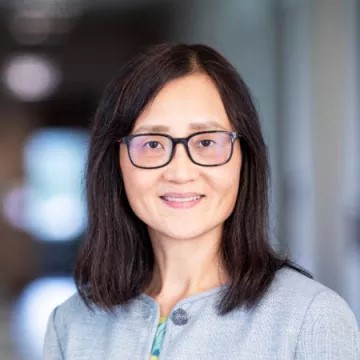General Assembly and Keynote Address
The General Assembly will be followed by a keynote address by Wei Jiang, Vice Dean for Faculty and Research and Asa Griggs Candler Professor of Finance at Emory University Goizueta Business School.
Wei Jiang earned her PhD in Economics from the University of Chicago in 2001, following her MS and BA in Economics from Fudan University. Her distinguished academic career includes extensive research in corporate governance, institutional investors, technology, and financial markets. She is a Fellow and Board Member of the European Corporate Governance Institute (ECGI) and a Research Associate at the National Bureau of Economic Research (NBER) in Law and Economics and Corporate Finance.
Throughout her career, Jiang has published extensively in top finance, economics, and law journals, receiving numerous awards for her research excellence. Her editorial experience includes roles as an Editor at the Review of Financial Studies and Management Science.
Before joining Emory University in 2022, Jiang served as the Arthur F. Bruns Professor of Free Competitive Enterprise at Columbia Business School, Columbia University, where she also held the position of Vice Dean for Curriculum and Instruction. She is currently the Vice President of the American Finance Association and has previously served as President of the Society of Financial Studies.
Professor Wei Jiang will deliver a keynote address entitled "Finance Research About Technology: A Focus on Corporate Finance and Governance." The abstract follows:
In recent years, the synthesis of finance and technology has emerged as a transformative force for researchers and practitioners. The applications of machine learning (ML) and artificial intelligence (AI) have unlocked new possibilities in finance research, enabling measurements and tests that were previously unattainable. Alongside this development is a burgeoning interest in the “economics and finance of technology,” where the principles of financial economics are applied to big data and technology, prompting a reassessment of the operation of financial markets and decision-making of corporations. Many core issues in corporate finance and governance can be traced back to fundamental forces identified in seminal works: the separation of ownership and control (Fama and Jensen (1983)), the information asymmetry between insiders and outsiders (Leland and Pyle (1977)), and the challenges of incomplete contracting, hold-up, and renegotiation (Hart and Moore (1999)). These forces have driven the evolution of contract and securities governance structures in the U.S. Today, a critical question arises: where does technology fit into this established framework, and how is it transforming these structures?

